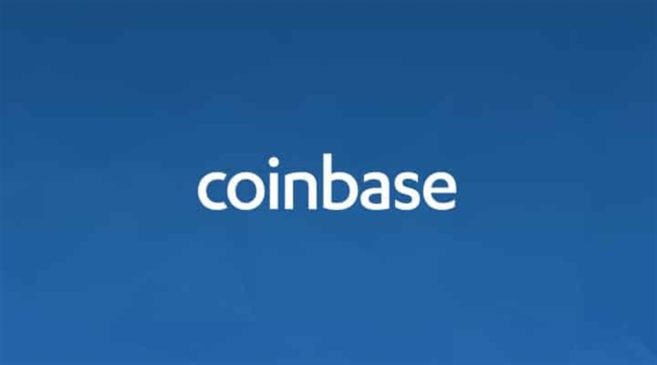Coinbase Derivatives Exchange, a derivatives platform linked to its namesake cryptocurrency exchange, will introduce Bitcoin and Ether futures contracts for institutional clients on June 5. Coinbase Bitcoin (BTI) and Coinbase Ether (ETI) futures contracts, sized 1 Bitcoin and 10 Ether
per contract, respectively, will be accessible through third-party
institutional Futures Commission Merchants (FCMs) and brokers, the company announced on Friday.
Coinbase in the announcement said it has witnessed increased
demand for futures contracts among investors. Futures contracts are
agreements that allow investors to buy or sell an asset at a predetermined price
at a specific future time.
“With the launch of
these institutional-sized USD–settled contracts, we look to empower
institutional participants with greater precision in managing crypto exposure,
expressing directional views, or tracking BTC and Ether returns in a
capital-efficient manner,” Coinbase said.
Early May, Coinbase
launched a global cryptocurrency derivatives exchange targeting institutional clients based outside
the US. Afterwards, the new platform listed Bitcoin and Ether perpetual futures
contracts, with trades settled in stablecoin USD Coin. Unlike futures contracts, perpetual futures contracts do not have do not have a specific expiry data.
The launch of the derivatives exchange follows Coinbase’s acquisition of a regulatory
license for digital asset exchange services, including token sale
and issuance, in Bermuda. The step came after the publicly listed crypto company hinted at
leaving the US due to regulatory concerns.
Struggles with the Regulators
In March, Coinbase received
a Wells Notice from the Securities and Exchange Commision (SEC). The notice stated that the Nasdaq-listed company was breaching the US securities regulations by offering unregistered
securities.
Additionally, the notice
pointed out that the SEC could press further actions against the exchange,
including an injunction or a cease-and-desist order. Responding to the SEC’s step, Coinbase’s CEO Brian Armstrong faulted the agency for failing to provide
proper regulations to the industry.
Nonetheless, the company is expanding its products offering, most recently launching
a zero-fee subscription model that lets users trade crypto at no fee with incentives of higher rewards. Dubbed Coinbase One, the service launched in 2021 in the US under a beta program and opened to users in the UK, Germany, and Ireland.
Coinbase Derivatives Exchange, a derivatives platform linked to its namesake cryptocurrency exchange, will introduce Bitcoin and Ether futures contracts for institutional clients on June 5. Coinbase Bitcoin (BTI) and Coinbase Ether (ETI) futures contracts, sized 1 Bitcoin and 10 Ether
per contract, respectively, will be accessible through third-party
institutional Futures Commission Merchants (FCMs) and brokers, the company announced on Friday.
Coinbase in the announcement said it has witnessed increased
demand for futures contracts among investors. Futures contracts are
agreements that allow investors to buy or sell an asset at a predetermined price
at a specific future time.
“With the launch of
these institutional-sized USD–settled contracts, we look to empower
institutional participants with greater precision in managing crypto exposure,
expressing directional views, or tracking BTC and Ether returns in a
capital-efficient manner,” Coinbase said.
Early May, Coinbase
launched a global cryptocurrency derivatives exchange targeting institutional clients based outside
the US. Afterwards, the new platform listed Bitcoin and Ether perpetual futures
contracts, with trades settled in stablecoin USD Coin. Unlike futures contracts, perpetual futures contracts do not have do not have a specific expiry data.
The launch of the derivatives exchange follows Coinbase’s acquisition of a regulatory
license for digital asset exchange services, including token sale
and issuance, in Bermuda. The step came after the publicly listed crypto company hinted at
leaving the US due to regulatory concerns.
Struggles with the Regulators
In March, Coinbase received
a Wells Notice from the Securities and Exchange Commision (SEC). The notice stated that the Nasdaq-listed company was breaching the US securities regulations by offering unregistered
securities.
Additionally, the notice
pointed out that the SEC could press further actions against the exchange,
including an injunction or a cease-and-desist order. Responding to the SEC’s step, Coinbase’s CEO Brian Armstrong faulted the agency for failing to provide
proper regulations to the industry.
Nonetheless, the company is expanding its products offering, most recently launching
a zero-fee subscription model that lets users trade crypto at no fee with incentives of higher rewards. Dubbed Coinbase One, the service launched in 2021 in the US under a beta program and opened to users in the UK, Germany, and Ireland.



